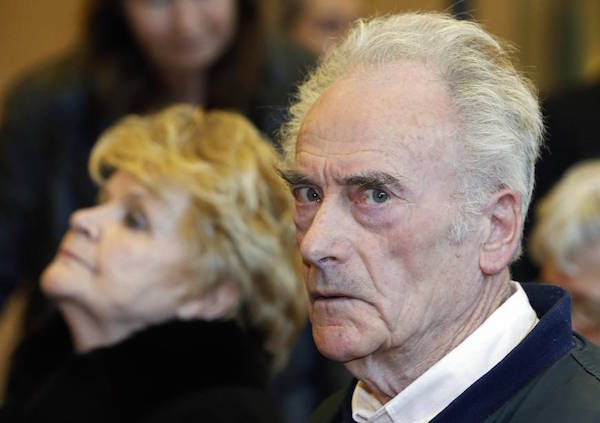Law & Politics
Prosecutor Asks for Five-Year Suspended Prison Sentence for Picasso’s Electrician Pierre Le Guennec

Photo via: Japan Times

Lorena Muñoz-Alonso

After a swift three-day court hearing, the prosecutor in the case against Pierre Le Guennec—the electrician who worked for Pablo Picasso shortly before his death in 1973—and his wife Danielle, has demanded a five-year suspended prison sentence for the septuagenarian couple, Le Dauphine reports (see Accused Picasso Thieves Are Heading to Trial).
The verdict against the Le Guennecs, who stand accused of handling stolen goods, will be announced by the judge on March 20.
For 37 years, the couple kept in their garage 271 artworks by Picasso, including six oils on canvas, 28 lithographs, and some rare cubist collages and sketchbooks, dating from 1900 to 1932 (see Unsolved Art Heists: The Missing Paintings of Vincent van Gogh). The total value of the treasure trove is estimated at between €60 and €80 million, depending on the sources (see Trial of Picasso’s Electrician Pierre Le Guennec Starts Today).
Le Guennec worked for Picasso in his villa in Mougins, southeastern France, where he even installed an alarm system. The couple have always maintained that Picasso gave them the works as a present but the Picasso Estate, led by Claude, one of the artist’s sons, has dismissed the Le Guennecs’ story as “ridiculous.”
“We are dealing with a very particular offence, one which has been detrimental to humanity,” said public prosecutor Laurent Robert during the trial. Robert said he was sure that the works had been stolen (see Picasso Stolen from Art Fair in Miami). “The amount of works is incompatible with any notion of gift,” he said, stressing that the elderly couple had harmed the “trust” and “memory” of Picasso.
And yet, he called for a “balanced” sentence for the defendants, whom he described as overwhelmed by the events. He also pointed out that the Le Guennecs had not made any money from their actions. “One can be an honest person in life, and still make a mistake,” he conceded.
For more artnet News art crime stories, see Spanish Electrician Who Stole Priceless Manuscript and €2.4 Million from Santiago Cathedral Gets 10 Years.